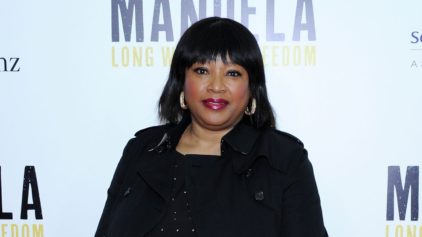It’s almost impossible these days to switch on South African radio or television, or read a local newspaper, website or tweet, and not hear Nelson Mandela’s name mentioned.
Friday marked the 19th anniversary of Mandela’s inauguration as South Africa’s first democratically elected — and first black — president, four years after he was released from prison.
For many South Africans, the coverage of his recent hospitalization and poor health seems like media overkill. Older South Africans stress that the African way of coping with the twilight years is culturally nuanced. It should be viewed as a final journey, and journalists should be more sensitive to these customs.
And when the subject is raised in the context of his possible death, “we get people who will call … to say ‘we don’t speak about it, certainly not in our culture, not in black culture, not in African culture,’ ” radio host Ashraf Garda said recently on the national broadcaster’s Media@SAfm show.
A Global Figure
Mandela was back in the hospital at the end of March for 10 days with a recurring lung infection and pneumonia. The latest health scare attracted journalists from around the world. And some South Africans say they are feeling bombarded by reporters hungry for information and commentary about the 94-year-old former president.
That includes veteran journalist and author Allister Sparks. Enough is enough, he told Media@SAfm.
“It does become a bit wearisome, and I suppose some people have become upset about it … the sheer volume of coverage and the degree of personal detail that goes with it,” he said.
However, Sparks added that South Africans must accept that Mandela is a global figure who continues to attract global attention for his leading role in ending apartheid nearly two decades ago.
“We have to recognize that the world is interested in him. And we’ve got to understand that there are many cultures in our society, and no particular culture can expect to prevail,” Sparks said. “It’s part of recognition of a great man.”
Balancing Reporting And Cultural Sensitivities
Ma Fikile Mlotshwa was among the churchgoers at a recent service who were singing — and praying — for Mandela, or as most South Africans affectionately call him, Madiba, his clan name.
Read more: NPR

